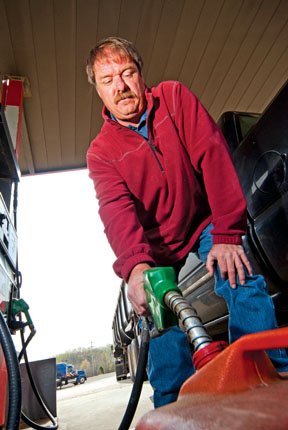ARKANSAS — The state House of Representatives gave its approval to House Bill 1902 — which will increase the tax on diesel fuel by 5 cents per gallon — and transmitted the bill to the Governor’s Office on Friday.
If Gov. Mike Beebe OKs the bill, it will then be up to the voters to decide its fate on the November 2012 ballot.
It is projected that the proposed tax increase on diesel road fuel will collect about $1.1 billion over 10 years for Arkansas state road and highway improvement and repair.
The state currently finances road improvement through bonds that are backed by a 4-cent-per-gallon tax, which will expire in 2013.
The Arkansas State Highway and Transportation Department expects there will be $19 billion of needed repairs on Arkansas highways over the next 10 years.
One industry that may be impacted the most by the tax increase is the trucking industry; however, the Arkansas Trucking Association is backing the proposed tax increase.
Although it may cost the trucking companies more money, it will improve the tools they need to get the products where they need to be with fewer delays and less-costly repairs to the trucks and equipment.
“It’s never easy to support a tax unless it is believed it is necessary for the infrastructure that we depend on,” said Lane Kidd, president of the Arkansas Trucking Association. “It’s an improvement our industry depends on, and it is impossible for Arkansas to keep having great highways by cutting taxes.”
Kidd said 85 percent of Arkansas cities are served exclusively by trucks, and that the extra expense of the diesel tax is something that, over time, the carriers can work into their operating expenses, causing little effect on the price to the consumer.
“The trucking companies have fuel surcharges over and above basic rates charged,” Kidd said. “Everything we buy is a culmination used in making the product, and this [tax] is a very minimal part.”
Anyone who uses diesel for road use, such as the trucking and gas industries and farmers, would be impacted by the increase.
Although farm fuel that is not intended for road use won’t be affected by the tax increase, the diesel used to transport farmers’ crops to market will be taxed.
